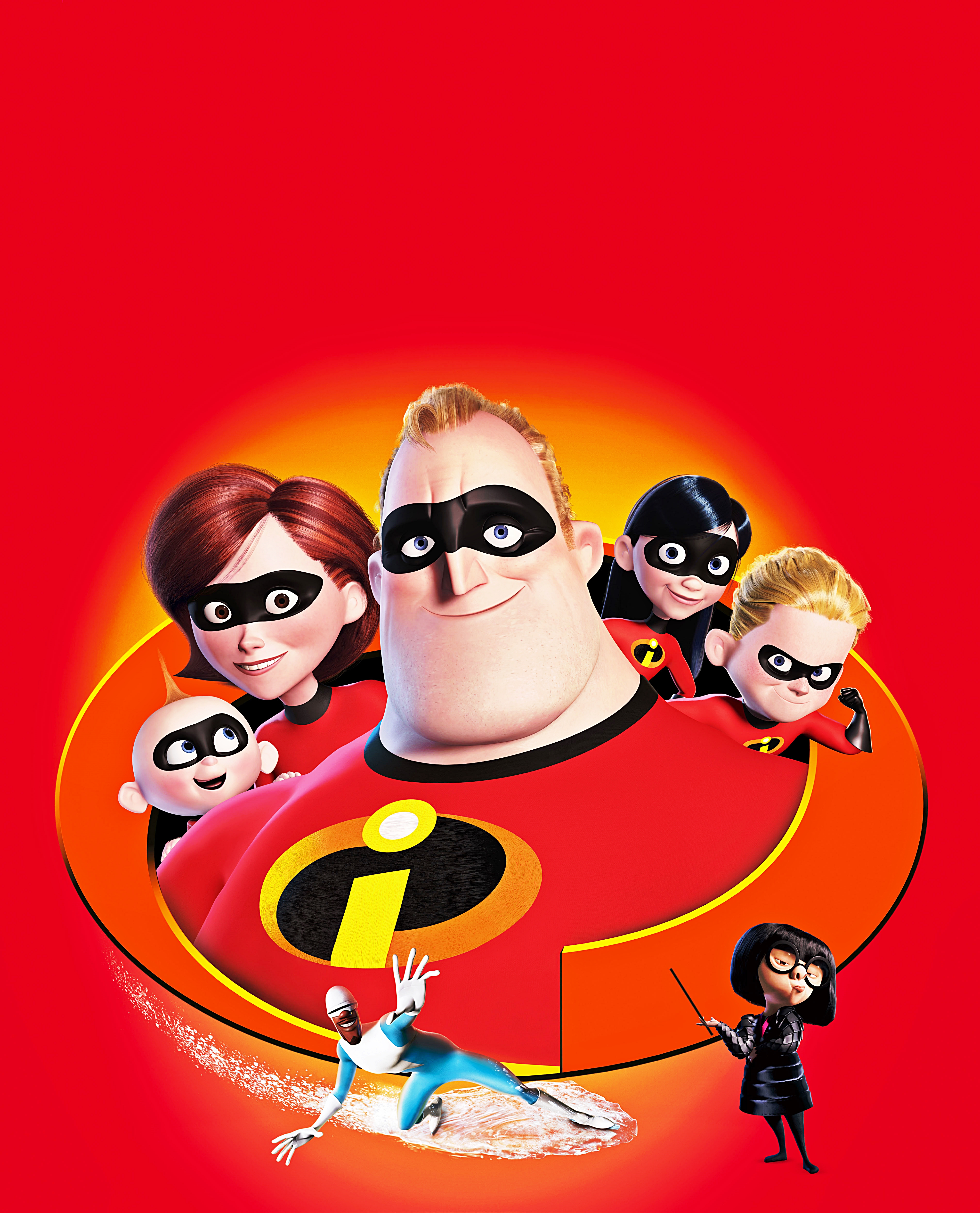 |
| The Incredibles (2004) |
The social and political themes hidden in the film, facial expressions and dialog has a different meaning at 20 than it did at 10. As a 10 year old I can imagine I thought the film was just a cool story about the importance of family and being helpful to your siblings. Also the ideal that there is no "I" in team, and no goals can be achieved alone. (Ironic because there is an "I" on the center of their uniforms) I have never been into superheros or Marvel characters or any of that stuff, I was always too busy playing outside. But at 10 years old I probably thought The Incredibles was pretty kick-ass because it was a well put together animated film. That, and I thought I was as fast as Dash.
First of all, I would like to say that Mr. Incredible definitely had some sort of intimate relationship with Ms. Mirage. The way those two looked at each other during the film at several points and Mr. Incredibles change in attitude, two give a ways he is getting laid. It had to be said. With that out of the way, I can expand on more important concepts. First, the exploitation of supers and legal demise of them symbolizes the destruction the legal system can do in American society. It is a way of expressing corruption and fulfilling the phrase "no good deed goes unpunished." The film writers and screen play directors do a great job of blending the three act structure of the film including the development of different characters and allowing different situations to come together ultimately at one point of view. For example the writers are displaying no matter how strong of a person you are (Mr. Incredible) you are vulnerable to weakness and temptation. No one is invincible from the forces of everyday life. The film also displays the story of the classic comeback, some thing American audiences eat up like a second serving of dessert. It also displays racial separation, notice how Fro-zone is just a helper or "side-kick" in the film? Also he was the only colored super in the film. Not something someone would notice at age 10. However, he is my favorite character. Violet Par, is introduced as a stereotypical emo character with dark black hair covering her face, quiet, and literally invisible to the so called popular kids in school. With character development and support from her family she is pictured in the end of the film with new found confidence and wardrobe, supplemental theme? I would say so, the writers showing the impact of parental support and involvement and the effect on a young teenagers confidence. It may seem that I am focusing on the "darker" elements of this film but it is aspects of our culture we have grown to ignore and overlook in everyday life. Which is why these things go unnoticed while watching the film. The over optimistic and protective middle aged stay at home mom/wife, father with a unsatisfying white collar-job living life with regret and experiencing a mid-life crisis, the ADD hyperactive late elementary aged son, and struggling with finding herself teenage daughter with confidence issues. This film is a mirror of the "common" themes of American families. Graph it out and each family has one of the following characters in their family's. But do they realize it while watching the film? No, because it seemingly normal, or that's what society tells us.
I'm not trying to go on a rant about how messed up society is and how we are all brainwashed, but only bring to light how film writers develop characters to relate to us as people. Because a story we relate to is a story we believe in and can take subsistence from. It makes portraying the broad obvious message to the audience easy and much more clear. You can break down a film frame by frame, scene by scene, to explain the emotion and decision making and how "you" saw that coming based on the shot selection. But the most important aspect of any film is character development over the three act structure. And in The Incredibles, the characters portray stereotypical every day Americans that we pass everyday on the streets, they just happen to be superheros in their free time.
No comments:
Post a Comment